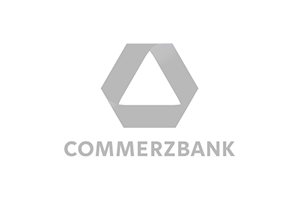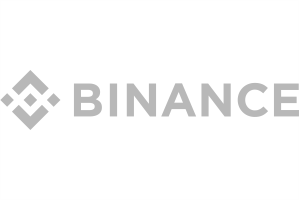This is being developed for blockchain-savvy young people who want to use digital assets legally and without obstacles. Below, we will describe the regulation of virtual assets, the conditions for obtaining a Nigeria crypto license, taxation, and many other important information.
What Activities Does a Crypto License in Nigeria Cover?
Nigeria’s regulatory landscape for cryptocurrencies and digital assets is a dynamic arena with various stakeholders. The Central Bank of Nigeria (CBN) firmly opposes the use of unregulated cryptocurrencies, citing a conflict with its role as the issuer of the country’s legal tender. In contrast, the Securities and Exchange Commission, Nigeria (SEC), categorizes virtual crypto assets as securities within its purview. In Nigeria, anyone offering crypto or digital asset services is considered a Virtual Asset Service Provider (VASP), categorized as:
- DAOPs (Digital Assets Offering Platforms)These enable digital asset issuance, similar to Initial Coin Offering platforms.
- DACs (Digital Asset Custodians)They provide safekeeping services for virtual assets, including crypto wallets and exchanges.
- DAX (Digital Assets Exchanges)
These electronic platforms facilitate the trading of virtual assets, like well-known crypto exchanges such as Binance and Quidax.
This classification system helps regulate and define the roles of various players in Nigeria’s crypto and digital asset landscape, including those seeking crypto license Nigeria.
Advantages of Obtaining a Nigeria Crypto License
A Nigeria cryptocurrency license provides clear regulatory guidelines, enhancing industry transparency.
These regulations protect investors from scams and fraudulent tokens, fostering trust.
Register cryptolicensing in Nigeria ensures VASPs adhere to compliance standards, promoting accountability.
The SEC’s rules reduce scam token creation, safeguarding investors.
A ₦10 billion ($24 million) cap for fundraising through digital assets ensures manageable limits.
The rules promote safe crypto operations on registered platforms.
The SEC is working on solutions to decentralization hurdles, boosting investor safety.
What is the difference between Crypto Exchange License in Nigeria and Other Countries?
In a comparative analysis of crypto regulations, Nigeria, Poland, and Lithuania showcase diverse approaches. Nigeria imposes substantial financial requirements for crypto exchanges, emphasizing stringent oversight and reporting by the SEC. Poland places a strong emphasis on Anti-Money Laundering (AML) and Know Your Customer (KYC) procedures, along with robust data management and reputation checks. Lithuania combines capital requirements with the appointment of local AML officers and local activity mandates, underpinned by lower client identification limits. Each country’s approach reflects a nuanced balance between financial prerequisites, AML measures, and the preservation of privacy in the crypto industry.
Crypto Exchange License in Nigeria
Registering for a Nigerian crypto license as a Digital Assets Exchange (DAX) operator entails specific requirements:
- Application fee: ₦100,000 ($240)
- Processing fee: ₦300,000 ($722.46)
- Registration fee: ₦30 million ($72,000)
- Minimum paid-up capital: ₦500 million ($1.2 million)
Additionally, crypto exchanges serving Nigerians must secure certification from the Corporate Affairs Commission (CAC). Each exchange must establish a SEC-approved board, and CEO tenures are limited to ten years, with potential for a five-year extension.
Exchanges must regularly submit trading data and financial reports to the SEC. The SEC must be notified before an exchange ceases operations, and providing financial assistance for digital token trading is prohibited.
Before listing tokens for trading, the SEC must grant a “no objection” approval, ensuring transparency, security, and disclosure of project details, whitepapers, security measures, past hacks, and vulnerabilities. While these rules aim to safeguard crypto traders, data sharing with the SEC raises privacy concerns, challenging the core concept of pseudonymity in cryptocurrency transactions.
The Process of Obtaining a Crypto Exchange License
The fee required for the application must be paid, as well as the processing fee, the registration fee, and the fee for sponsored persons.
Next, an application for DAX registration is submitted in the prescribed SEC form, accompanied by 2 and 2D for the persons responsible for compliance. They must be key officials of the DAX.
In addition, evidence is provided to prove that the minimum paid-in capital is available. An important aspect is to verify the source of funding. This can include bank balances, investments in listed securities, and other sources of funding.
The current guarantee covers at least 25 percent of the minimum paid-in capital and must be maintained in accordance with the securities regulations (SEC).
Financial Transactions are executed by gross settlement in real time.
This is followed by the submission of certified documents to the CAC (Corporate Emotions Commission). These documents include the certificate of incorporation, memorandum and articles of association with the relevant powers, CAC forms that will contain data on share capital, return of allotment and information about directors.
If the company is new, you need to prepare financial statements.
It is necessary to have the company secretary or director sign an undertaking to maintain records and comply with the SEC’s regulations and also with Law No. 29 of 2007 on investments and securities.
The SEC may also request the following:
- IT readiness and assurances and representations about system readiness.
- An internal auditor’s declaration proving that sufficient resources, security measures, IT support, and risk management protocols are in place. This will also include the appointment of an information security officer to effectively manage cyber risks.
Taxation Nigeria Cryptocurrency
Virtual currency transactions in Nigeria are subject to existing tax laws. The Finance Act 2023, effective from September 2023, amends the Capital Gains Tax Act to include ‘digital assets’ in its scope. These assets are defined as tokens representing debt or equity claims on issuers.
While this implies a 10% tax rate on capital gains from virtual currency disposal, tracking such gains may be challenging due to regulatory complexities and the decentralized nature of cryptocurrencies like Bitcoin.
FAQ
Why choose Nigeria for cryptocurrency exchange and storage activities?
Nigeria crypto exchange license offers advantages for cryptocurrency activities:
- Recent regulations provide clear rules for digital assets.
- Capital gains from cryptocurrencies are taxed at 10%.
- Nigeria’s tech-savvy population drives demand.
- The market has room for expansion.
Is cryptocurrency legal in Nigeria?
Cryptocurrency is legally recognized and permissible in Nigeria. The country has taken steps to regulate and provide legal clarity for the use and trading of digital assets.
Which organization oversees the operations of cryptocurrency firms in Nigeria?
The Securities and Exchange Commission, Nigeria (SEC), regulates activities of crypto companies in Nigeria.
What activities can a company do with a crypto license in Nigeria?
A cryptocurrency license Nigeria allows a company to engage in activities such as crypto exchange services, wallet services, digital asset custody, digital asset offerings, crypto trading platforms etc.








